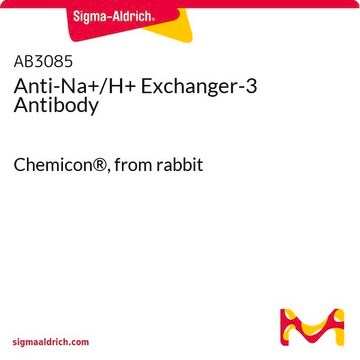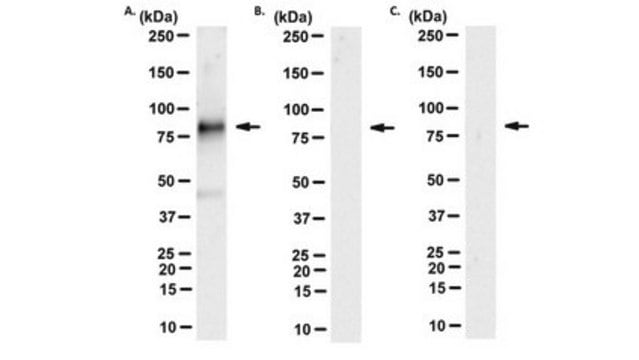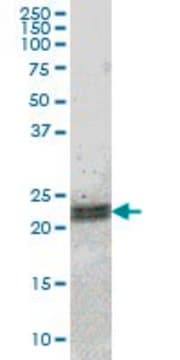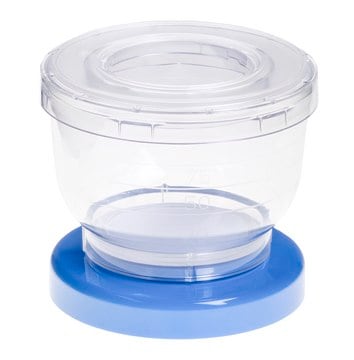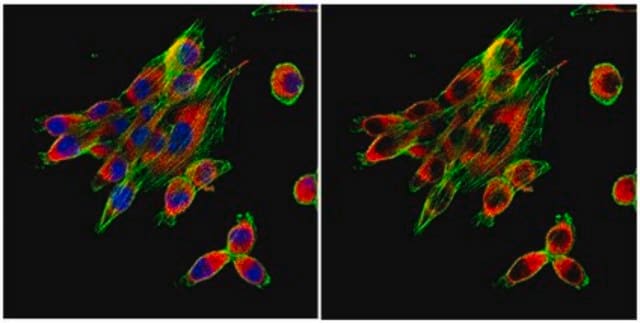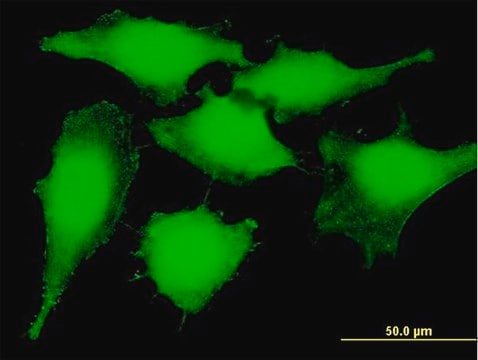MAB3136
Anti-Na+/H+ Exchanger-3 Antibody, isoform NHE3, clone 4F5
clone 4F5, Chemicon®, from mouse
Synonym(s):
NHE3
About This Item
Recommended Products
biological source
mouse
Quality Level
antibody form
purified immunoglobulin
antibody product type
primary antibodies
clone
4F5, monoclonal
species reactivity
rat, rabbit
manufacturer/tradename
Chemicon®
technique(s)
immunocytochemistry: suitable
immunohistochemistry: suitable (paraffin)
immunoprecipitation (IP): suitable
western blot: suitable
isotype
IgG1
NCBI accession no.
UniProt accession no.
shipped in
wet ice
target post-translational modification
unmodified
Gene Information
rabbit ... Slc9A3(100009430)
rat ... Slc9A3(24784)
Specificity
Immunogen
Application
Immunohistochemistry (rat) on PLP or paraformaldehyde fixed tissue. Works on paraffin embedded tissue sections.
Immunocytochemistry
Immunoprecipitation (use non-ionic detergent)
Optimal working dilutions must be determined by the user.
Neuroscience
Ion Channels & Transporters
Linkage
Physical form
Storage and Stability
Other Notes
Legal Information
Disclaimer
Not finding the right product?
Try our Product Selector Tool.
Storage Class Code
10 - Combustible liquids
WGK
WGK 2
Flash Point(F)
Not applicable
Flash Point(C)
Not applicable
Certificates of Analysis (COA)
Search for Certificates of Analysis (COA) by entering the products Lot/Batch Number. Lot and Batch Numbers can be found on a product’s label following the words ‘Lot’ or ‘Batch’.
Already Own This Product?
Find documentation for the products that you have recently purchased in the Document Library.
Our team of scientists has experience in all areas of research including Life Science, Material Science, Chemical Synthesis, Chromatography, Analytical and many others.
Contact Technical Service